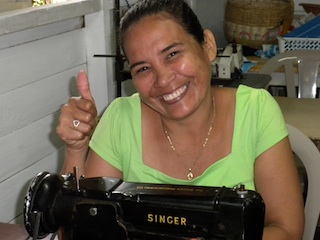
So what does the term "fair trade" really mean? Some of you might be surprised to learn that the leaders shaping the movement from within can be just as perplexed by this question as the consumers trying to understand it through news articles and packaging labels.
Many of us are increasingly aware of the labor exploitation that pervades all different types of global production chains, be it a plantation or a sweatshop. So it makes sense that when we buy something, we want to be reassured that our purchases are promoting fair wages and good working conditions for its producers. This attitude is the essence of fair trade, a movement whose growth over the last few decades has led to the creation of numerous third party certification labels, each with a different set of standards and goals. At the same time, growing awareness about the phenomenon of "fairwashing" (like "greenwashing") has made many people skeptical about the truth behind companies' fair trade claims. We may try to simplify our choices by seeking out familiar labels from a certification agency that we trust, but it is important to realize that fair trade products cannot be reduced down to a basic choice between "certified" or "not". No label is a panacea for worldwide labor exploitation, and there are many conflicts and compromises that underlie fair trade certification systems.
This idea has been given new prominence with the controversy surrounding Fair Trade USA's recent
decision to allow large coffee plantations and private estates to apply for fair trade certification. While some believe that giving more coffee industry players the chance to adopt fair trade principles is ultimately a good thing, others
argue that this will weaken both fair trade standards and the movement's original mission of empowering small farmers to compete in the global market. Many point out that the inclusion of coffee plantations will make it even easier for large companies to certify only specific product lines under their existing production facilities, a technique that is often resented by the 100% Fair Trade companies who take great care to ensure that each product is fairly produced.
These arguments over coffee certification standards are relevant for the rest of the fair trade movement as well, including the apparel sector in which Maggie's is involved. We have been very proactive in seeking out third party certification for Maggie's products, but in the process we have learned that earning a label is not necessarily the most effective way to adhere to our fair trade principles.
Over the last two years, Maggie's has spent over $60,000 in order to meet fair trade certification requirements – regulations that the farmers and producers who make our products have largely found to be cumbersome, restrictive, and not very financially beneficial for themselves or their organizations. This is why we have recently begun to use alternative methods of conveying our fair trade story, such as detailed step-by-step
disclosures of our supply chains and thorough third party rating systems like
free2work.org.
As a 100% Fair Trade company, we strive to stay connected with our producers and the reality of their working conditions, so for us being "fair trade" goes far beyond the presence of a certification hangtag. We want our brand's integrity and transparency to clearly show that Maggie's products embody the welfare and satisfaction of every worker in our chain.
After years of experience in the fair trade movement, Maggie's defines fair trade as an aspirational method of commerce that is still evolving as it seeks to level the playing field for all workers around the world. We hope to inspire more fair trade consumers to look beyond labels and to get to know individual brands and the producers behind their products. It is through this insight that the world can truly become fair.
Photo of co-op employee in Nicaragua courtesy of Maggie's Organics